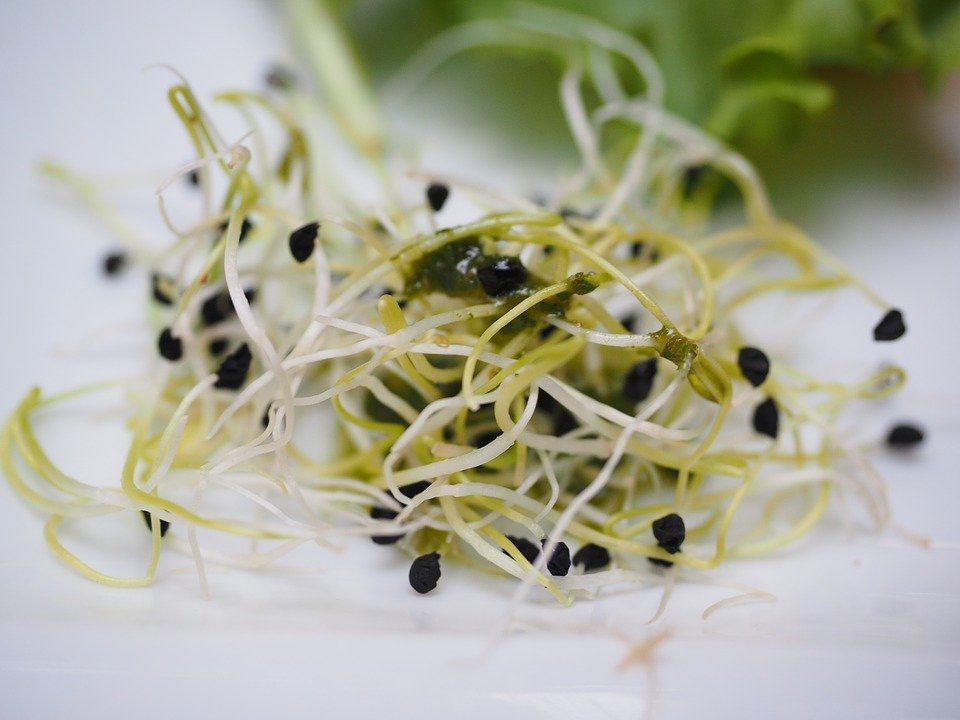Although alfalfa belongs to the legume family, it is also a herb and native of South and Central Asia. Over centuries, people have used it as an economical and nutritious food source for their livestock. In addition to consuming the leaves and making sprouts from the seeds, the herb in an essential component of many Ayurvedic and Chinese medicines. Modern-day research confirms that alfalfa benefits extend to your skin and body and are great for overall wellness. You can now find it in supplement form where the leaves and seeds are dried and powdered. Alternatively, add the sprouts to your diet and avail of its many health positives.
Alfalfa Benefits for Your Skin and Hair
By consuming alfalfa, you can get the goodness of chlorophyll that is rich in Vitamin A and other enzymes that are essential for keeping your skin looking young and healthy. The enzymes also work to keep your skin hydrated, blemish-free, and free of wrinkles. If you have a problem with hair loss, consider taking alfalfa supplements. That’s because the legume is rich in proteins, and vitamins C, E, B1, and B6. All these nutrients promote the circulation of blood in the scalp and improve the absorption of oxygen. Additional minerals like calcium, iron, zinc, and silica prevent hair loss and stimulate the growth of new hair.
Alfalfa Benefits for Overall Health
Acts as a Detoxification Agent and Boosts Immunity
The chlorophyll and phytonutrients like L-canavanine in alfalfa work like detoxification agents and cleanse your blood of impurities. Because of its abilities to break down carbon dioxide and fight bacteria present in the air you breathe, the herb helps protect you from diseases.
![]() Keeps Your Heart Healthy
Keeps Your Heart Healthy
Alfalfa benefits include the ability to keep your heart strong by lowering the bad cholesterol in the blood. As a result, you avoid related conditions like a buildup of plaque on the walls of the arteries and hypertension. You’ll also lower the risk of blood clots and strokes. When you eat alfalfa sprouts or seeds, the saponins they contain prevent the absorption of cholesterol into the bloodstream in the intestines.
Lowers the Risk of Diabetes and Assists Weight Loss
Patients having diabetes can use supplements of the herb to help lower blood glucose levels. That’s because the herb stimulates the release of insulin into the blood. One of the key alfalfa benefits is its ability to raise levels of metabolism that also helps in controlling sugar levels. Given the obesity is often the cause of diabetes, alfalfa can help you lose weight also. The herb is low in calories and contains healthy protein and fiber.
Improves Digestion
The rich fiber content in alfalfa can also help keep your digestive system healthy. As a result, you get relief from various digestive issues like stomach ulcers, constipation, indigestion, nausea, gastritis, and bloating among others. You can also avoid the risk of colon cancer since the herb contains canavanine. This is a kind of amino acid that binds and eliminates carcinogens in the colon.
Contains Rich Amounts of Antioxidants

- Brain injury and stroke
- Kidney stones and urinary tract infections by acting as a diuretic
- Excessive bleeding, promotes clotting thanks to the iron and vitamin K content
- Insomnia and sleep disorders
- Depression and anxiety
- Lack of appetite
- Fatigue and lack of energy
- Arthritis and rheumatism
Women can use the supplements to replace the lost estrogen due to menopause and get relief from the symptoms.
While alfalfa benefits are many for your overall health, excessive consumption can be harmful. Check with your medical practitioner before taking the supplements.

 Keeps Your Heart Healthy
Keeps Your Heart Healthy